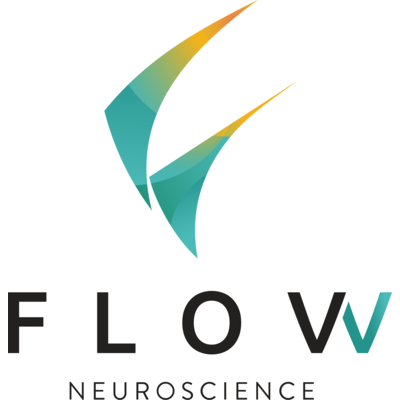Flow is the next wave of mental health treatment, combining brain stimulation and behaviour therapy in a unique programme to treat Major Depressive Disorder. Comprising a tDCS headset and app companion, Flow is used remotely at home without the need for medication.
Our mission is to enable accessibility and flexibility to empower both patients and healthcare professionals in treating and managing mental illnesses like depression.

How did you come up with the idea for the company?
Starting out, Erik* and I came together as scientists on a mission to combine tradition with innovation. Powered by my background in Clinical Psychology and Erik’s in Neuroscience, we’d had a lot of exposure to brain stimulation and its use throughout the years for different clinical disorders and saw an opportunity to bring research and in-clinic techniques into more accessible treatment solutions.
Mental health treatment, in general, has reached a stalemate and with over half of those who are depressed not receiving adequate care, we decided to embark on empowering mental health on a global scale. This started with our first solution Flow, which brings the proven technique of tDCS home in a compact device, delivering gentle stimulation to areas in the brain that have lowered activity in those who are depressed.
Accompanying this is our companion app which condenses key research and techniques from clinical psychology into one concise programme. Authored by our licensed in-house psychologists, this plan ensures the activity restoration in your brain is accompanied by long-term habit changes.
More from Interviews
- Interactive Fun and Entertainment: Interview With 501 Fun
- Meet Jaron Soh, Co-founder & CEO of LGBTQIA+ Mental Wellness App: Voda
- Meet Nathalie Morrison: The Founder Behind Astrea, the Fashion-Tech Brand Putting Lab-Grown Diamonds at the Heart of Luxury
- Meet Badr Ward, CEO And Founder Of Education Platform: Lamsa
- A Conversation with Andrej Persolja, Founder of We Fix Boring
- A Chat with Kebbie Sebastian, CEO and Founder of Merge
- Meet Dr Agnès Leroy, GPU Director at Cryptography Tool: Zama
- Meet Roman Eloshvili, Founder of ComplyControl
How has the company evolved during the pandemic?
The pandemic was a seismic shift for everyone in every walk of life. For the healthcare industry in general, it shed more light on the necessities of having innovative, digital and remotely accessible solutions for diagnosing, treating and managing a wide range of conditions.
For us, there has already been a steady growth in the need for our type of technology over the years due to the lack of alternative treatment pathways and the desire for more autonomy in care plans from both patients and clinicians. Evolving through this time, we’ve been able to understand the realities of healthcare systems that need to rely on remote technologies to treat the population, providing insight on how to provide the optimal treatment pathway for both patients and doctors.
What does the future hold for the company?
Recently, we acquired the technology of Halo Neuroscience, a leader in neuromodulation for performance enhancement, propelling our mission to improve mental health. In the future, we aim to combine different neuromodulation techniques to personalise treatments further and target brain regions with more precision.
This will allow us to innovate treatments that are patient-specific and even more efficient and reliable. As we know mental health issues are as unique as the individual experiencing them, so further developing treatments that can target the precise areas a person is struggling with, will change the future of mental health treatment as we know it.



